EVERY nation's most important player at the 2018 World Cup
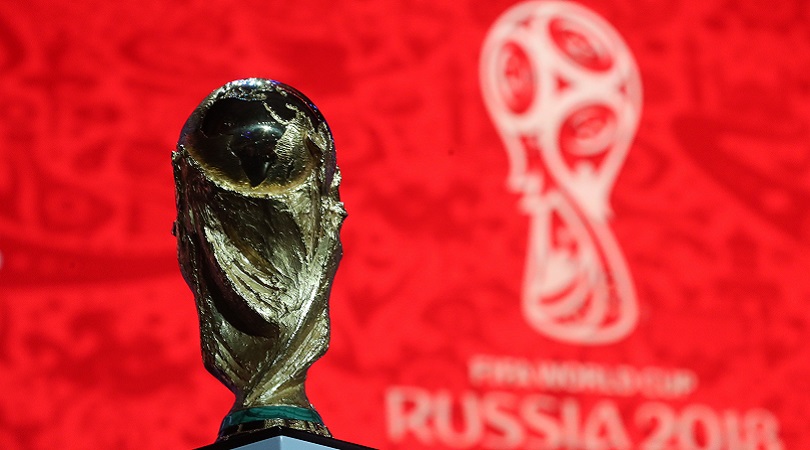
2018 World Cup
Russia will host the 21st edition of the World Cup next summer, with the action getting under way on 14 June and concluding with the final in Moscow on 15 July.
Thirty-two countries from five confederations will be represented at the tournament, and in this slideshow we’ve picked out the key man from each participating nation.
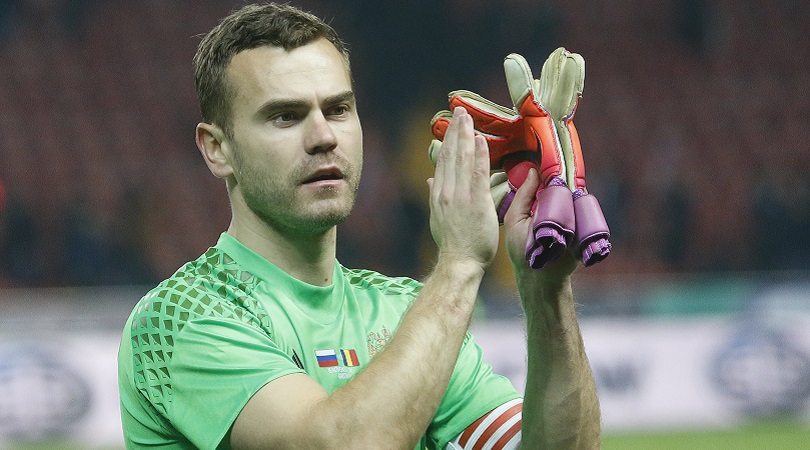
32. Igor Akinfeev (Russia)
FIFA ranking: 65
The CSKA Moscow goalkeeper is the only top-class star in the squad, but even he isn't popular with all Russian fans. Akinfeev made two costly blunders in matches against South Korea and Algeria at the 2014 World Cup, and was at fault again against Mexico at the Confederations Cup.
He’ll be desperate to avoid making similar errors at a home World Cup, particularly as Russia face a battle to even make it through the group. Akinfeev will turn 32 in April, and this could be his last chance to feature at an international tournament.
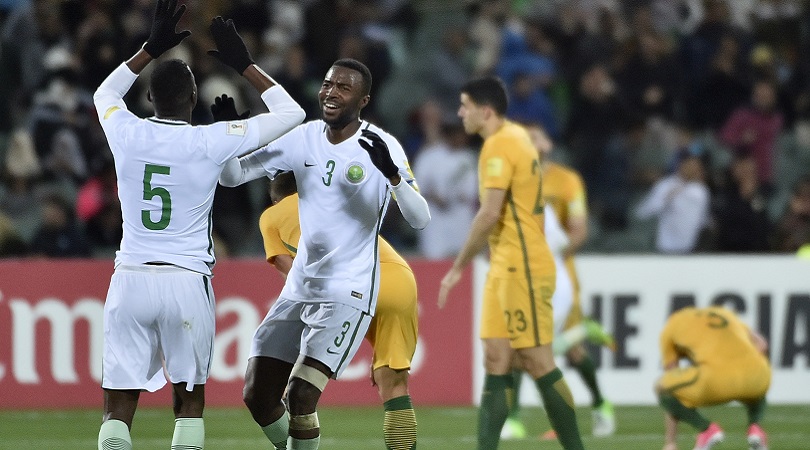
31. Osama Hawsawi (Saudi Arabia)
FIFA ranking: 63
Born in Mecca, the 33-year-old centre-back is almost sacred for the national team. The long-serving captain has won 128 caps for Saudi Arabia and scored seven goals, including a famous effort against Spain in 2010.
Hawsawi would love to add to that tally in Russia, but his priority will be keeping opposition strikers quiet. The Saudis are huge underdogs heading into the finals and will need to remain defensively solid to stand a chance of progressing to the last 16.
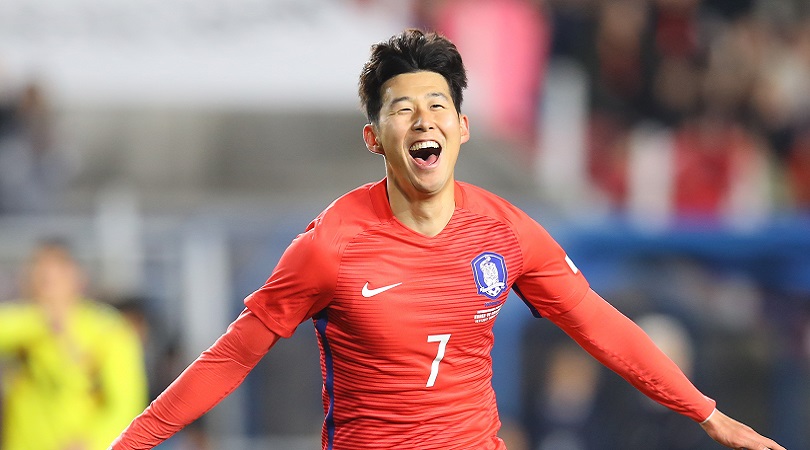
30. Son Heung-min (South Korea)
FIFA ranking: 59
The Tottenham forward is absolutely pivotal for South Korea and could be the difference between disaster and triumph. The 25-year-old continues to improve under Mauricio Pochettino at club level, while he scored seven times as the World Cup regulars stumbled over the line in qualifying.
Unlike at Spurs, though, Son is the main man for his country and will have to shoulder much more pressure and responsibility. South Koreans everywhere will hope he’s able to respond to the challenge.
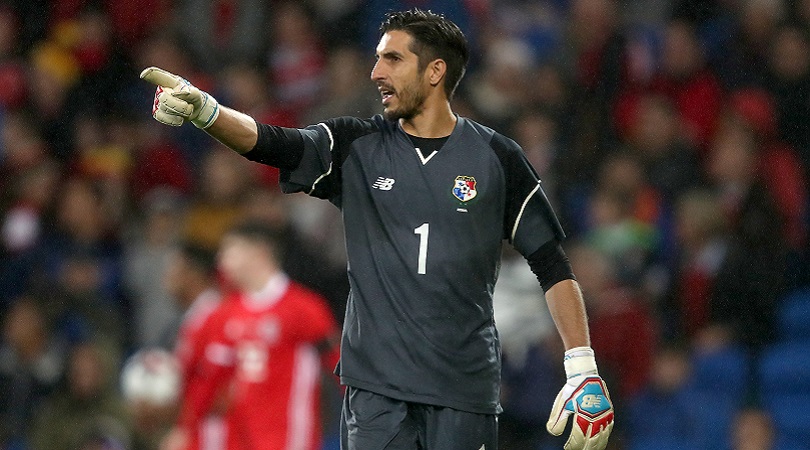
29. Jaime Penedo (Panama)
FIFA ranking: 56
The 36-year-old goalkeeper has represented his country 128 times and is hugely popular with fans due to his leadership qualities and fine reflexes inside his own penalty area.
Penedo spent two fruitful years at Los Angeles Galaxy, winning the MLS title in 2014 – which probably makes him the most successful Panamanian football of all time. He now plies his trade at Dinamo Bucharest and is likely to be a busy boy next summer.
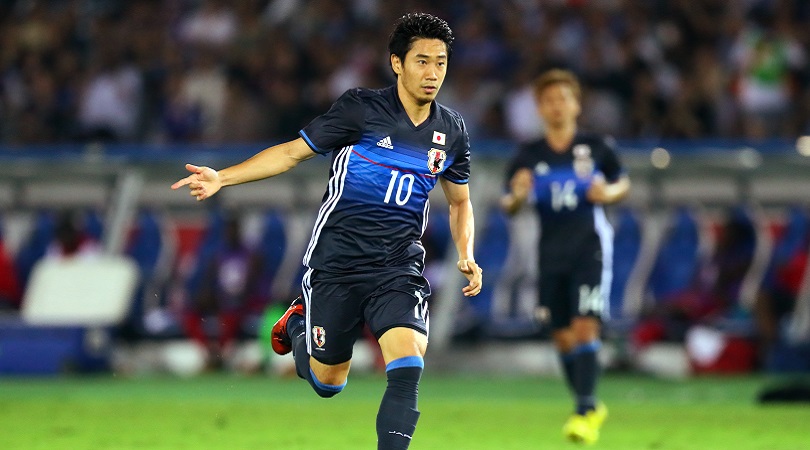
28. Shinji Kagawa (Japan)
FIFA ranking: 55
Kagawa’s best days may be behind him – he’ll never again be one of the biggest stars in the Bundesliga as he was in 2012 – but the Japanese midfielder remains his country’s most high-profile player.
After scoring five goals in qualifying, Kagawa will be similarly central to the Samurai Blues’ attacking efforts in Russia. Japan aren’t at their highest ebb right now, so they’ll need the 28-year-old to deliver.
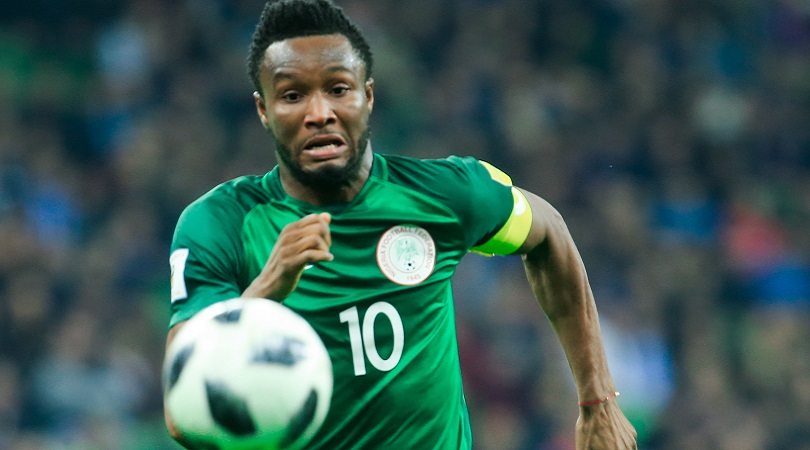
27. John Obi Mikel (Nigeria)
FIFA ranking: 50
The former Chelsea midfielder is kicking balls in China these days, but it'd be wrong to assume he’s past his best. His role for Nigeria has always been very different to the one he fulfilled at Stamford Bridge, with Mikel assuming playmaker duties for his country and always looking to link up with the Super Eagles’ forwards.
He’s also a leader and someone who has won major honours at club level, which can’t be said for all of his team-mates. Mikel will be integral both on and off the pitch next year.
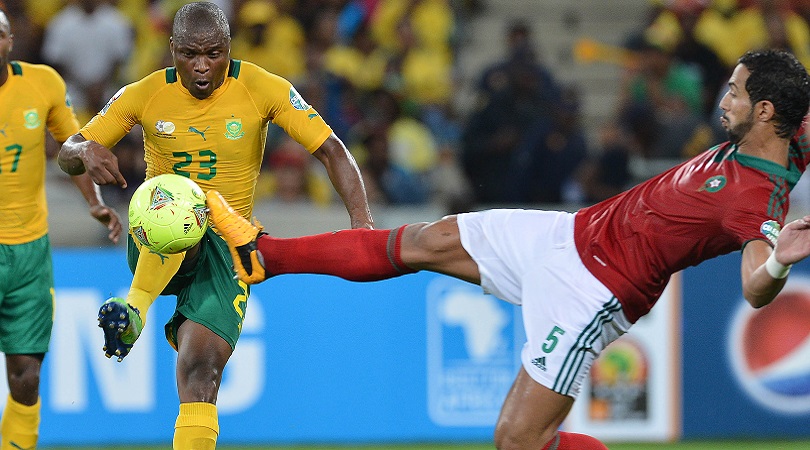
26. Medhi Benatia (Morocco)
FIFA ranking: 40
Morocco qualified for the World Cup largely thanks to a solid defence, and Benatia is their main man at the back.
The former Roma and Bayern Munich star doesn't play regularly at Juventus, but his contribution to the national team is immense; despite a plethora of options at centre-half, France might be regretting the fact he isn't playing for them. Benatia will need to be at his commanding best if Herve Renard’s men are to succeed in Russia.
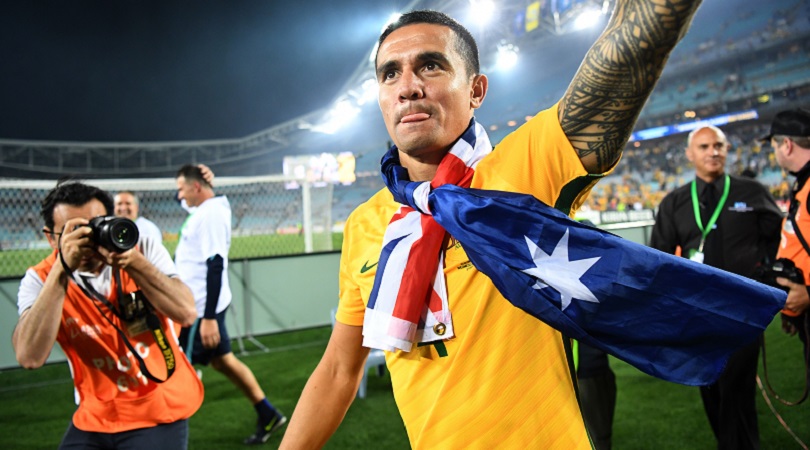
25. Tim Cahill (Australia)
FIFA ranking: 39
The veteran will be 38 come the summer, but he’s still one of the best headers of a ball in the world. Now playing for Melbourne City, the former Everton star scored 11 goals in the qualifiers, taking his tally for the national team to 50 goals in 104 games.
Cahill will be in top shape as he looks forward to a fourth World Cup, and while he might not play every minute of every Australia game, he has the ability to be decisive when he’s on the field.
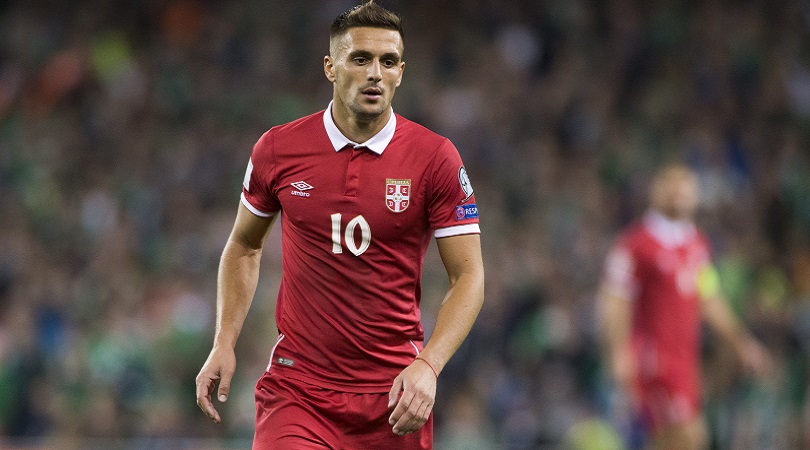
24. Dusan Tadic (Serbia)
FIFA ranking: 37
The Southampton playmaker was hugely influential during qualification, contributing four goals and seven assists as Serbia topped their group.
Two-footed and inventive, Tadic is a dead-ball specialist and the creative hub for his country. He can be unstoppable when on song, but he’s also been guilty of inconsistency throughout his time in the Premier League.
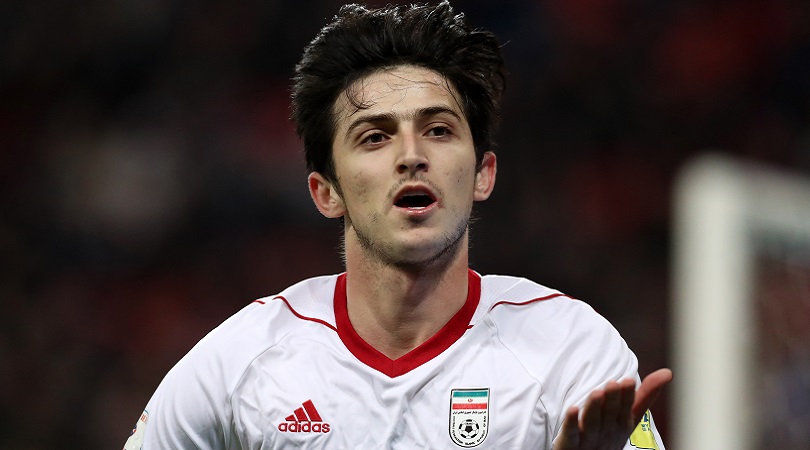
23. Sardar Azmoun (Iran)
FIFA ranking: 32
The lanky 22-year-old has an incredible scoring record for his country with 22 goals in 30 games – and half of them came during the qualifiers.
Iran’s biggest strength is their defensive solidity, but Azmoun is the standout talent at Carlos Queiroz’s disposal. His recent club form for Rubin Kazan has been poor, though, which is a major cause of concern for the Iranians ahead of their third World Cup appearance in the last four tournaments.
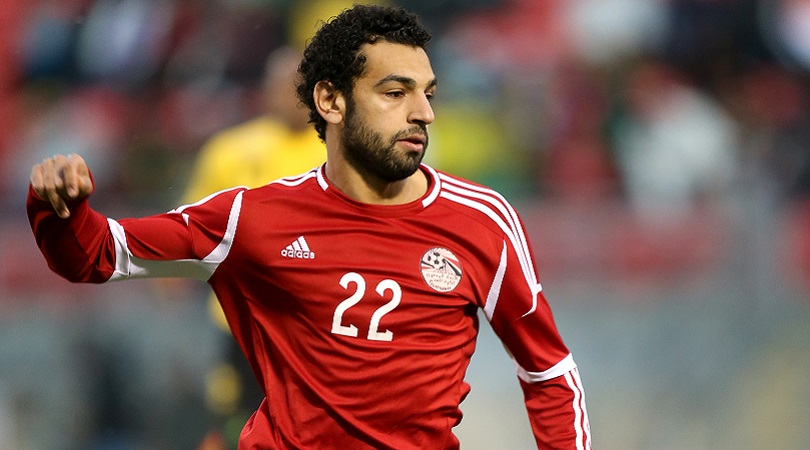
22. Mohamed Salah (Egypt)
FIFA ranking: 31
Arguably his continent's brightest superstar at the moment, the 25-year-old is also the most expensive African player in history – yet still a Liverpool transfer bargain.
Salah has been outstanding since arriving at Anfield from Roma for £35m in the summer, and he’s been magnificent for his country as well, scoring five goals in five qualifiers. A true leader, passionate and dedicated, Salah is capable of taking the Pharaohs far.
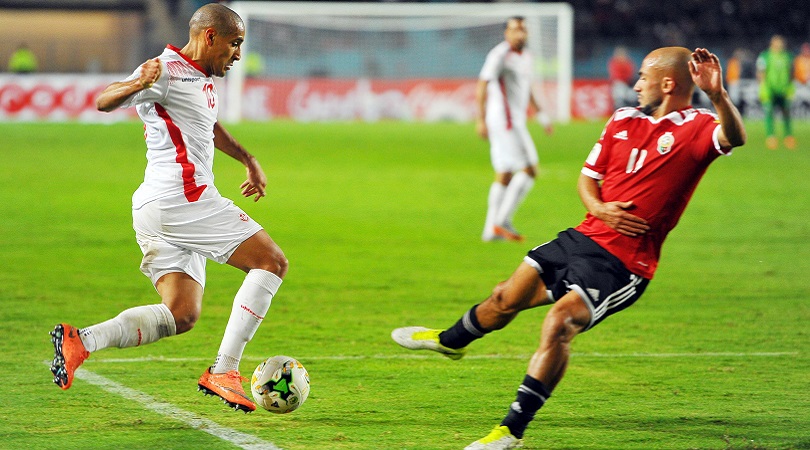
21. Wahbi Khazri (Tunisia)
FIFA ranking: 27
The talented Corsican opted to represent the country of his parents at international level, a decision which has made Tunisian football fans extremely grateful.
After a couple of hit-and-miss campaigns at Sunderland, the gifted attacker is currently getting his career back on track at Rennes. Not always the most reliable, Khazri is nonetheless capable of producing moments of magic from nothing.
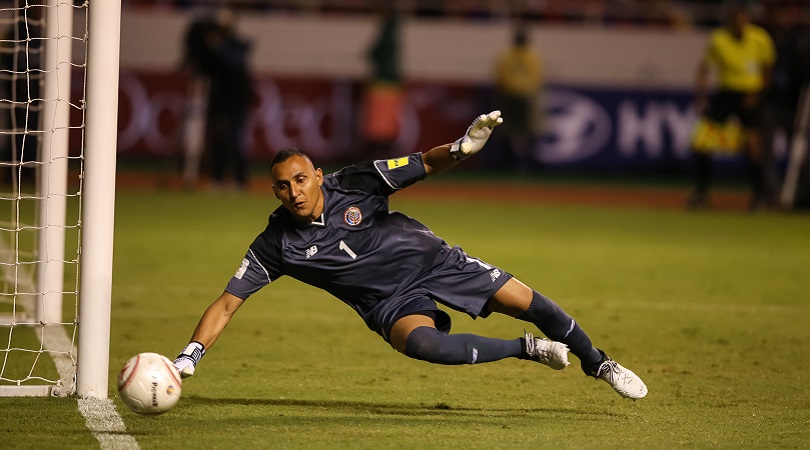
20. Keylor Navas (Costa Rica)
FIFA ranking: 26
The most high-profile player in the history of his nation, Navas is a starter for a Real Madrid side which has won two Champions Leagues and one La Liga title in the last two seasons.
The shot-stopper was phenomenal at Brazil 2014, conceding just two goals in five matches as Costa Rica reached the last eight. A repeat of that is unlikely, but Navas will be determined to inspire Costa Rica to another odds-upsetting World Cup campaign.
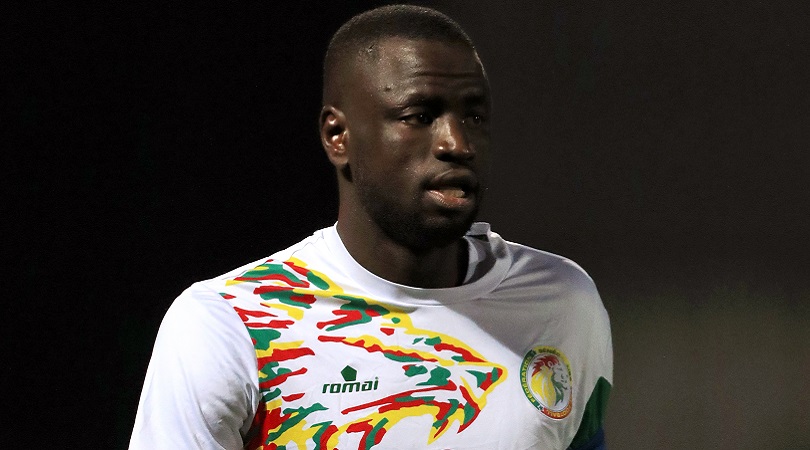
19. Cheikhou Kouyate (Senegal)
FIFA ranking: 23
Sadio Mane may be the most eye-catching member of the Senegalese squad, but West Ham stalwart Kouyate is his country’s captain and invariably at the heart of everything they do.
Experienced and driven, he’s a leader in midfield and possesses underrated technical gifts. He’s versatile too, able to slot in at centre-half if required, and will be essential as the The Lions of Teranga aim for the knockout stage.
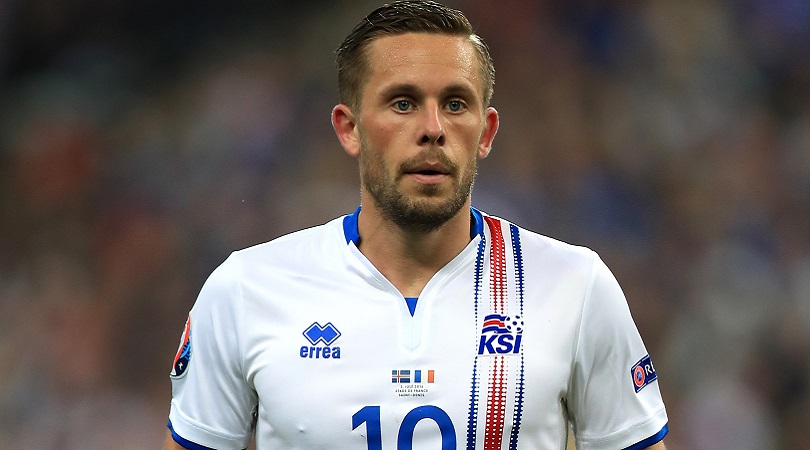
18. Gylfi Sigurdsson (Iceland)
FIFA ranking: 22
The attacking midfielder is struggling to find his feet at Everton after a big transfer from Swansea, but Icelandic fans know how vital he is to their cause.
Intelligent, creative and a dead-ball specialist, Sigurdsson is the main source of creativity in a hard-working team. Iceland, for all their qualities as a collective, simply wouldn’t be the same team without the former Tottenham man.
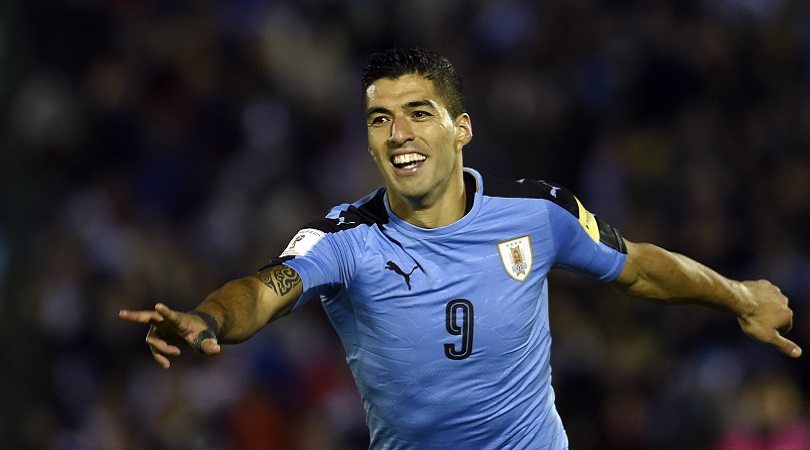
17. Luis Suarez (Uruguay)
FIFA ranking: 21
Suarez’s football hasn’t really done the talking at previous World Cups: the striker handled the ball on the line to deny Ghana a goal in the 2010 quarter-final, before taking a bite of Giorgio Chiellini’s shoulder four years later.
Although he’s had a poor start to the 2017/18 campaign for Barcelona, Suarez remains his country’s go-to attacking star. Uruguay’s all-time top scorer with 49 goals, the soon-to-be 31-year-old will know that Russia 2018 could be his final chance to triumph on the biggest stage of all.
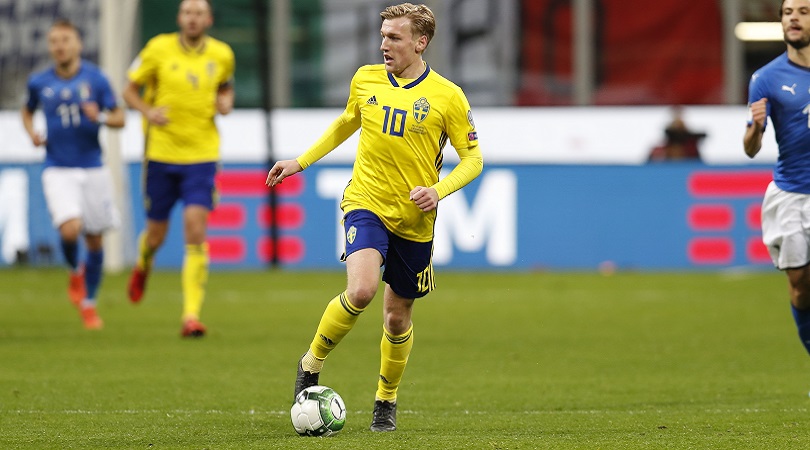
16. Emil Forsberg (Sweden)
FIFA ranking: 18
Forsberg has flourished since the retirement of Zlatan Ibrahimovic, and he’ll be keen to transfer his form for RB Leipzig to the international stage next summer.
As you might expect from a player who topped the Bundesliga charts with 21 assists in 2016/17, Forsberg is a creative presence who can play in a number of different roles. Gifted but hard-working, he’s Sweden’s star man.
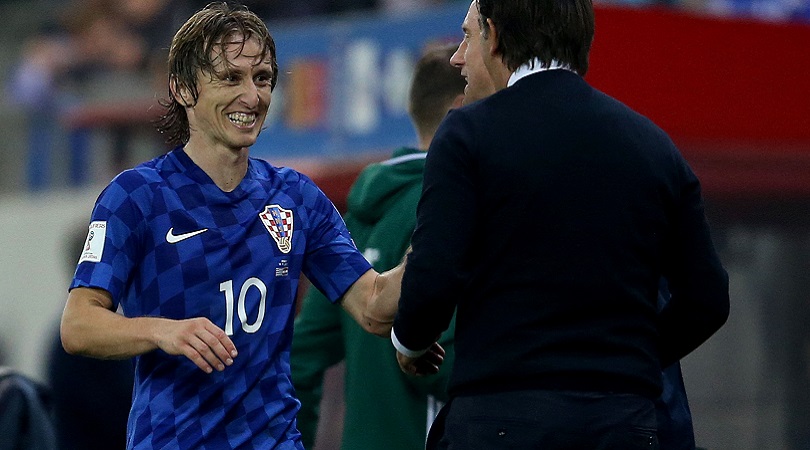
15. Luka Modric (Croatia)
FIFA ranking: 17
The 32-year-old midfielder has dazzled in the Real Madrid engine room in recent seasons, helping los Blancos lift two successive Champions League trophies.
Widely considered one of the best in the world in his position, Modric isn’t the most popular person in his homeland due to off-field issues. Nevertheless, he’ll once again be Croatia’s most important player as this current generation aims to make a lasting impression akin to the class of 1998.
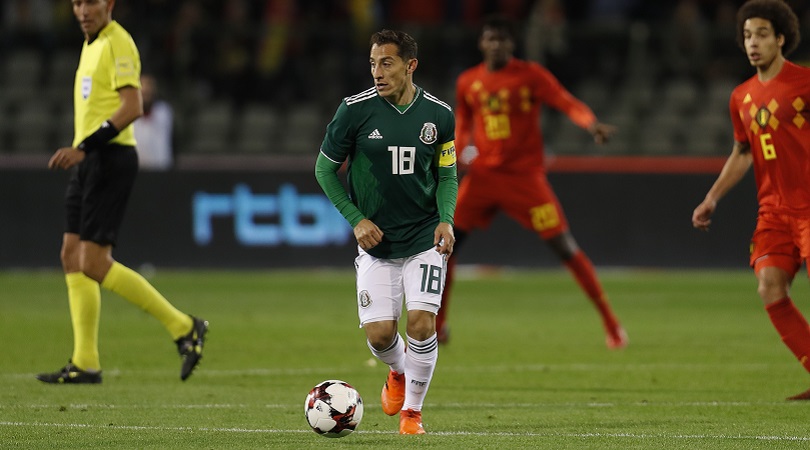
14. Andres Guardado (Mexico)
FIFA ranking: 16
Guardado, who has a remarkable 142 caps to his name despite still only being 31, is looking forward to his fourth World Cup. A captain and natural-born leader, the midfielder is an all-rounder in the centre of the park and will look to set the tempo for El Tri in Russia.
The Real Betis man has scored 25 goals for the national team, including important strikes in the 2011 and 2015 Gold Cup finals. Mexican supporters will hope he can continue to affect the big games next summer.
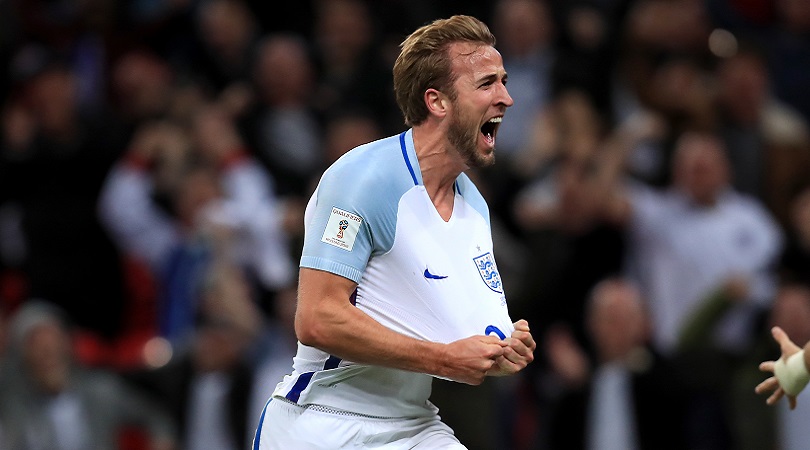
13. Harry Kane (England)
FIFA ranking: 15
Initially dismissed by some as a one-season wonder, Kane has scored 94 Tottenham goals in his last three full seasons in north London. He’s also got an excellent record in front of goal for England, netting 12 times in 23 appearances, and will lead the line for Gareth Southgate’s men in Russia.
Capable of scoring every type of goal, the 24-year-old is also adept at holding the ball up and bringing others into play. Just don’t expect him to be taking corners next summer.
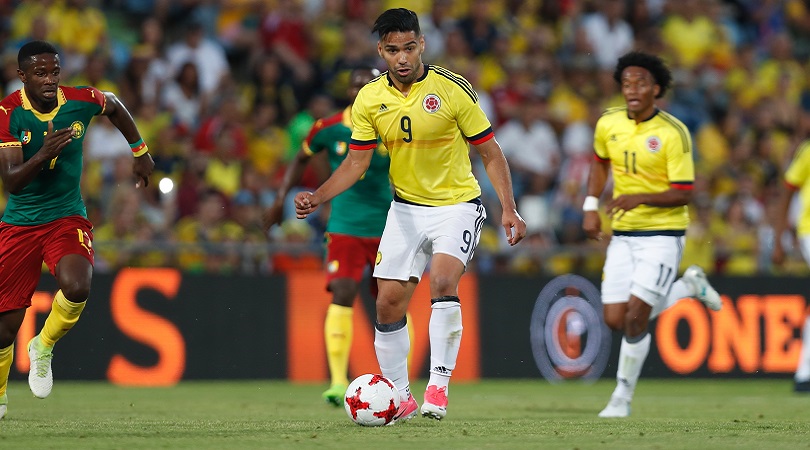
12. Radamel Falcao (Colombia)
FIFA ranking: 13
Having painfully missed out on the World Cup in 2014 because of a knee injury, 'El Tigre' has finally got his career back on track at Monaco.
The national team captain scored 21 goals in Ligue 1 last season and had netted 13 in 10 top-flight fixtures before the start of December this term. Aged 31 but yet to take part in a World Cup, Falcao will be champing at the bit to get going next summer.
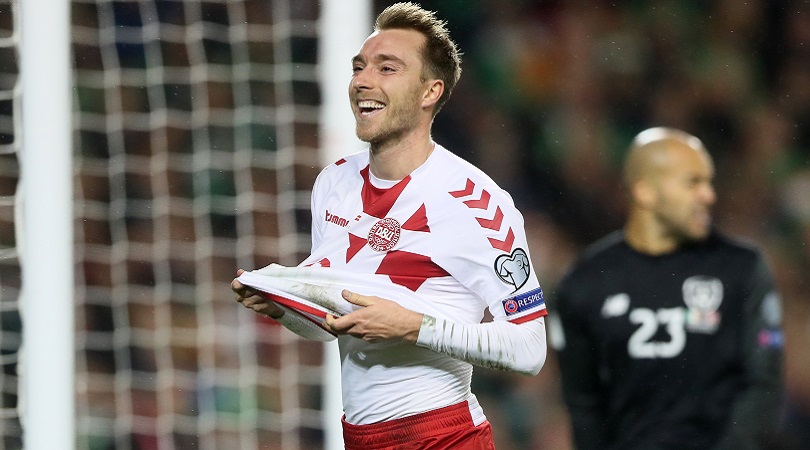
11. Christian Eriksen (Denmark)
FIFA ranking: 12
The Tottenham star scored 11 goals from midfield in qualifying, including a majestic hat-trick in the play-off second leg against the Republic of Ireland. The best Danish player since Michael Laudrup, Eriksen will be given creative freedom in a side which must otherwise focus on being difficult to beat in Russia.
The former Ajax man was too young to make a mark at the 2010 World Cup as an 18-year-old, but that experience could still be important for him this time around.
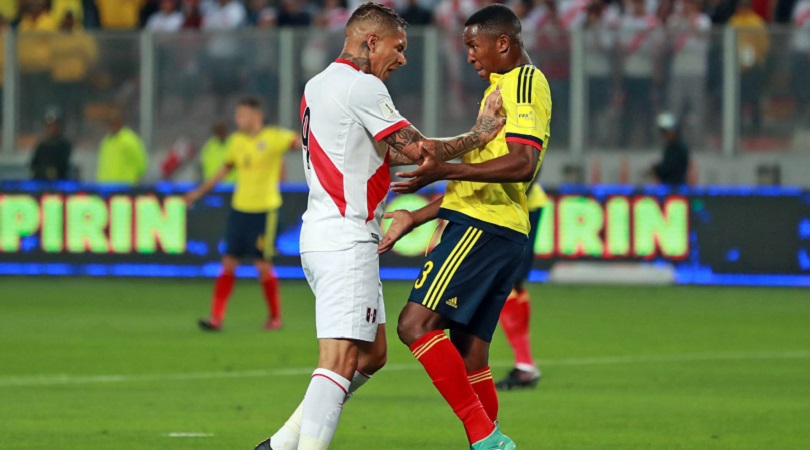
10. Paolo Guerrero (Peru)
FIFA ranking: 11
The former Bayern Munich and Hamburg striker has been in top form for Flamengo in recent years, scoring 20 goals in 44 appearances in 2017. He also netted five times for his country in the qualifiers and is Peru’s leading scorer of all time with 32 strikes since 2004.
Guerrero recently failed a drug test and consequently missed the two-legged play-off against New Zealand, but he’s likely to be cleared in time for the tournament next year.
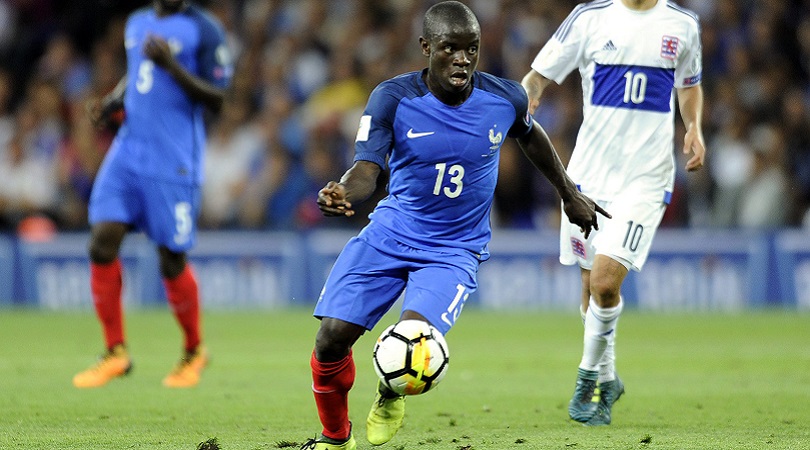
9. N'Golo Kante (France)
FIFA ranking: 9
The diminutive midfield warrior led Leicester to a sensational Premier League triumph in 2016, and repeated the feat with Chelsea a year later. Paul Pogba and Antoine Griezmann are the headline generators in this France team, but Kante’s ball-winning prowess makes him the most important cog in Didier Deschamps’ machine.
Still, fans of Les Bleus will hope the manager has learned his lessons from Euro 2016, when Kante was misused and France fell at the final hurdle, losing 1-0 to Portugal in extra time.
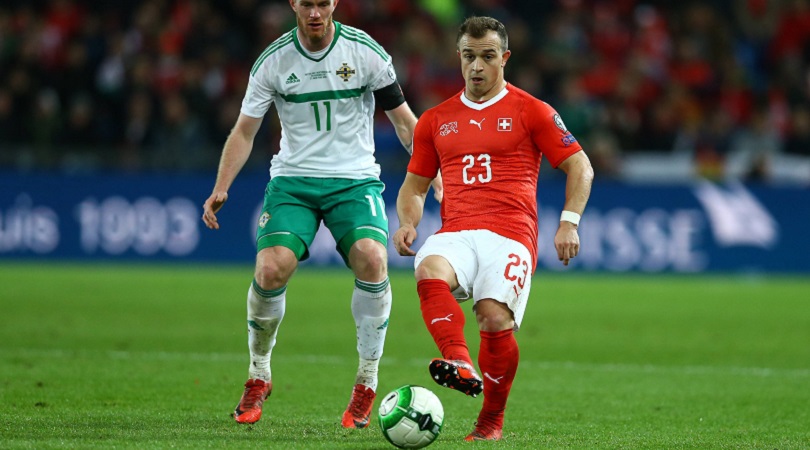
8. Xherdan Shaqiri (Switzerland)
FIFA ranking: 8
The Stoke winger was once expected to become one of the best players of his generation, but he’s failed to live up to his early potential after disappointing spells with Bayern Munich and Inter.
He’s a key player for his current club side, though, and remains vital to the Swiss’ chances of success in 2018. Although guilty of inconsistency, Shaqiri can pull a rabbit out of the hat at any moment – as he demonstrated with a stunning goal against Poland at Euro 2016.
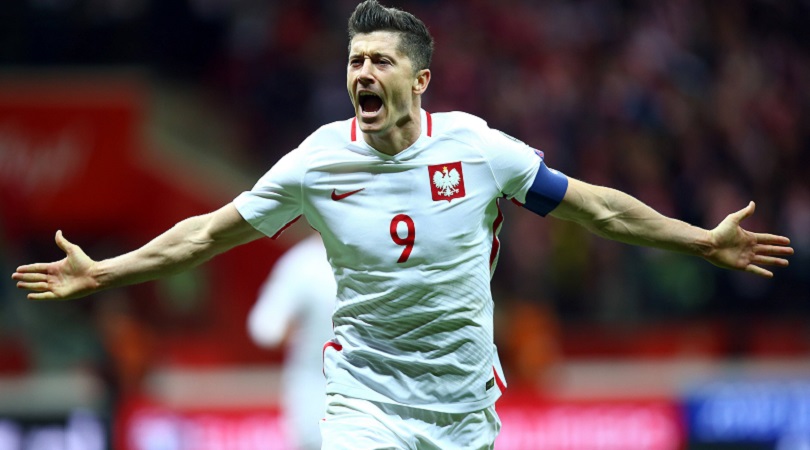
7. Robert Lewandowski (Poland)
FIFA ranking: 7
The Bayern Munich superstar was supreme in the qualifiers, playing every minute and topping the European scoring charts with 16 goals as Poland finished above Denmark, Montenegro and Romania in their group.
The striker has netted 30 Bundesliga goals in both of the previous two seasons, and is already the most prolific scorer in the history of the Poland national team. He can establish his legacy at his first World Cup.
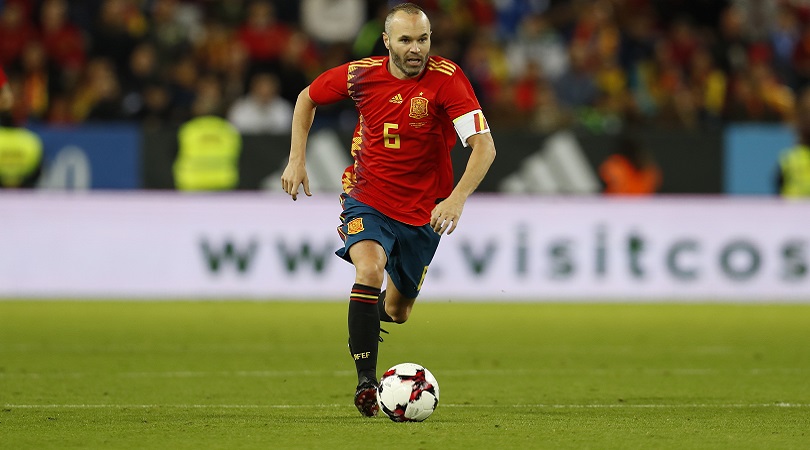
6. Andres Iniesta (Spain)
FIFA ranking: 6
This is likely to be a last major international tournament for the 33-year-old midfield maestro, who scored the winning goal in the 2010 final as Spain beat the Netherlands.
The Barcelona legend rarely finds the net for club or country these days, while his fitness could be a concern if he’s overworked for the rest of the season. Yet his ability to dictate the tempo and create chances for team-mates means Iniesta is still the most fundamental member of the Spanish squad.
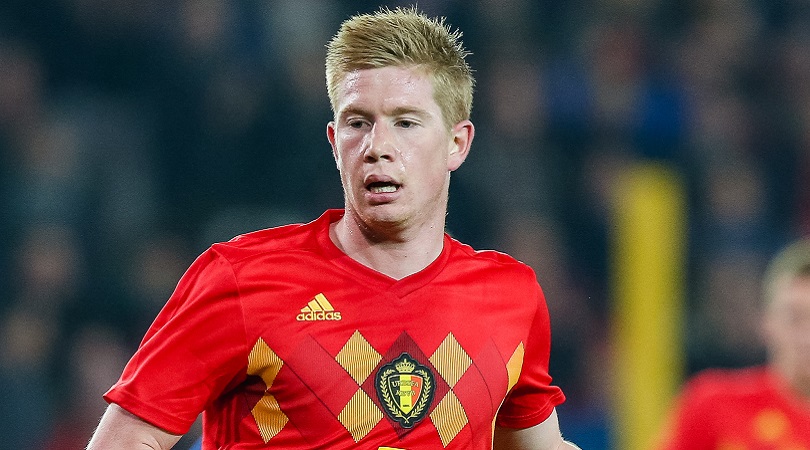
5. Kevin De Bruyne (Belgium)
FIFA ranking: 5
The Manchester City star, who Pep Guardiola considers the complete midfielder, has been in astonishing form in the Premier League this season, proving the most influential figure in City’s rise to the top of the table.
His passing range is stupendous and he possesses a fine shot from range; still just 26, De Bruyne could one day prove capable of winning the Ballon d’Or (once Leo Messi and Cristiano Ronaldo have exited the stage, of course).
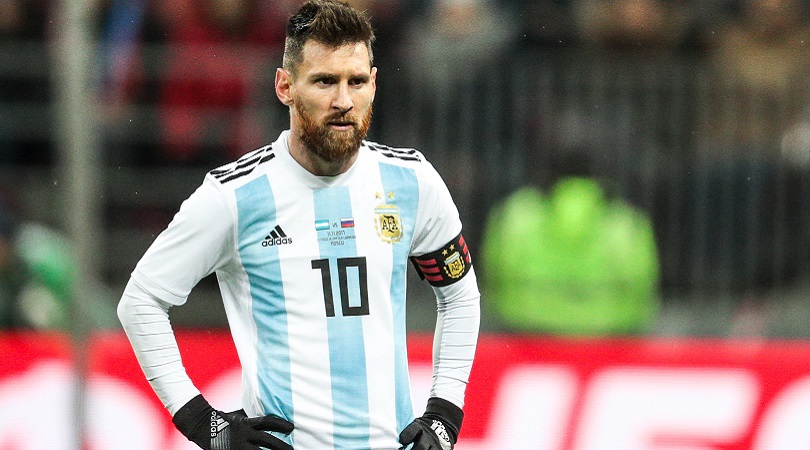
4. Lionel Messi (Argentina)
FIFA ranking: 4
Simply, Argentina wouldn't have made it to this tournament without their Barcelona superstar. Messi – who temporarily retired from the national team after losing in the 2016 Copa America Centenario final – scored seven goals in the qualifiers, including a crucial hat-trick against Ecuador on the final day.
This will be a fourth World Cup for the 30-year-old genius – but can he finally win a title for his country? It's the only trinket missing from a glorious career... but a big one.
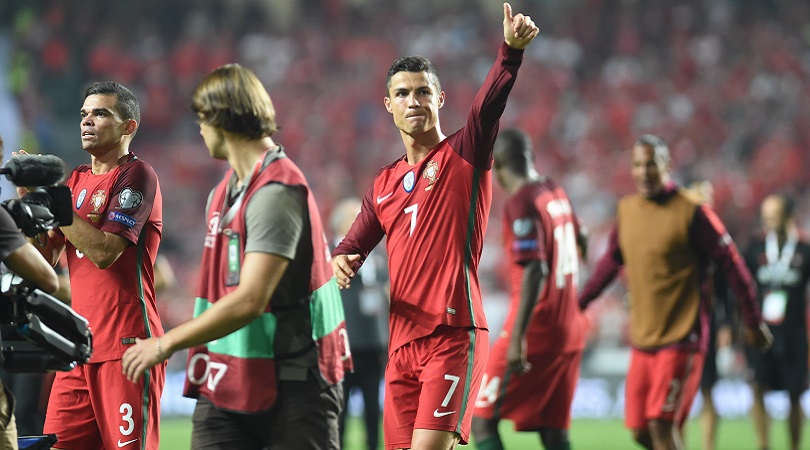
3. Cristiano Ronaldo (Portugal)
FIFA ranking: 3
Who else? Having one of the best players in history on your side is patently a massive advantage, and the Real Madrid forward – scorer of 79 goals in 147 matches for Portugal – will be integral as Fernando Santos’ men look to build on their Euro 2016 success.
Ronaldo has endured a slow start to the 2017/18 campaign and will be 33 next summer, but he’s still capable of making the difference at the highest level. The 2018 edition is his last chance to shine at a World Cup, but the ex-Manchester United man must be willing to share the spotlight with his colleagues.
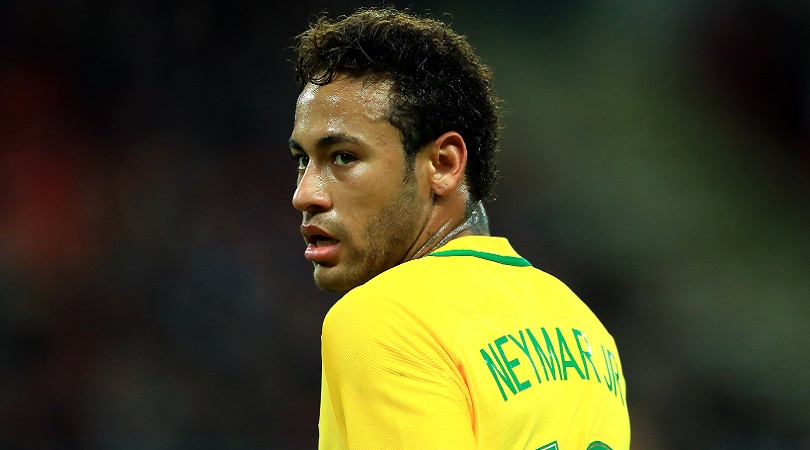
2. Neymar (Brazil)
FIFA ranking: 2
The burden on the €222m man has eased somewhat after Brazil won gold at the 2016 Olympics, while Tite seems to know how to bring the best out of the PSG forward.
The Selecao were far too dependent on Neymar for inspiration in 2014; it’s impossible to prove, but you get the feeling Brazil wouldn’t have lost 7-1 to Germany had their star man been fit. Four years older and with a great deal more experience under his belt, all Brazilian eyes will again be on Neymar in Russia.
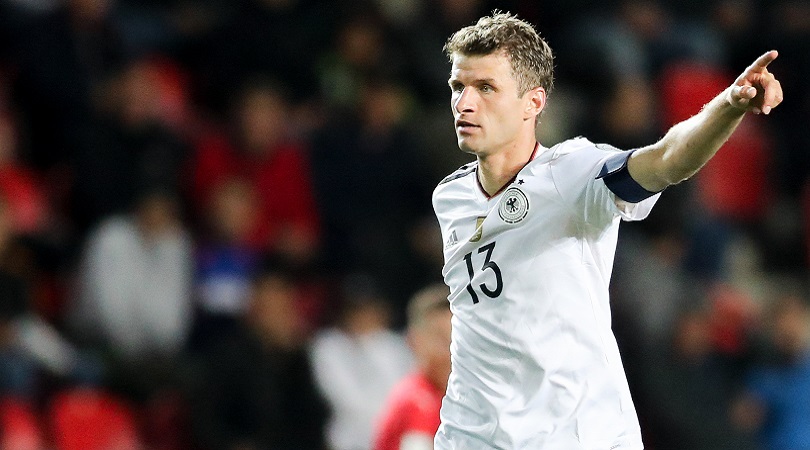
1. Thomas Muller (Germany)
FIFA ranking: 1
The top scorer at the 2010 World Cup is currently experiencing a difficult period which stretches back to Euro 2016. Muller only scored nine times in all competitions for Bayern Munich in 2016/17, but his leadership and versatility are still crucial for the national team.
A lot could depend on his form in the run-up to the tournament, but the forward retains the faith of long-serving manager Joachim Low and seems to thrive when it comes to the big occasion.

Greg Lea is a freelance football journalist who's filled in wherever FourFourTwo needs him since 2014. He became a Crystal Palace fan after watching a 1-0 loss to Port Vale in 1998, and once got on the scoresheet in a primary school game against Wilfried Zaha's Whitehorse Manor (an own goal in an 8-0 defeat).
